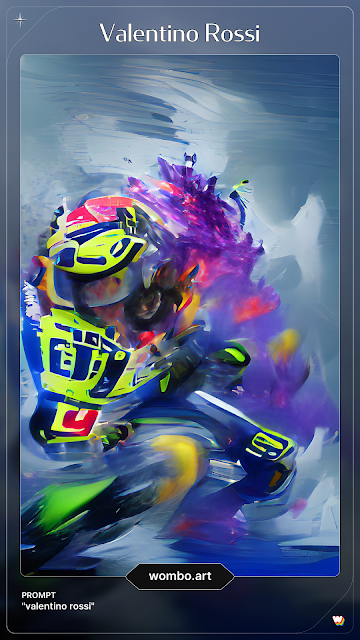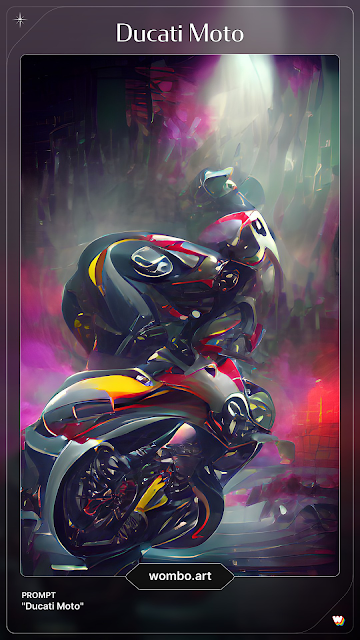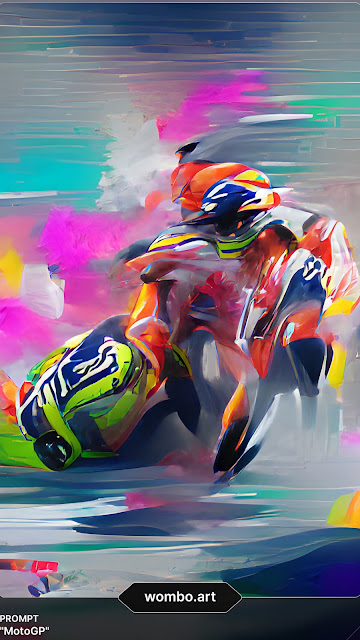 |
| Wombo's a rocket ship! |
Wombo (https://www.wombo.art/) is easy to play with - just throw some key words in and pick a style and you get an original piece of abstract art. If you run the same information it comes out different each time too.
So, what to throw in first? Valentino Rossi, of course - he's front and centre in many motorcyclist's minds this fall.
Perhaps my favourite part of this piece is the obvious Doctor's Dangle happening. The dangle was started by Valentino around 2005. It's still a bit of a mystery how it makes you go faster, but I suspect it offers a bit of fine tuning on your balance under heavy breaking while also offering a bit more wind resistance to slow you down. Wombo's algorithm won't know any of that, but it knows to associate the dangle with the man who invented it. At least it did this time, every other time I tried a Rossi image it wasn't there.
The Rossi implications got me thinking about how a machine intelligence sees a brand... and what interesting conclusions you might draw from it. Ducati got the first swing at it since they're such an iconic brand:
The colours certainly shout Ducati, and while the motorcycle isn't obvious, there is something about the lean that suggests two wheels. If someone who'd never heard of Ducati were shown this, I suspect they'd consider it a sporting brand rather than something else like a heritage focused company. I think they'd be happy with that.
I then threw Triumph into the mix:
Not sure what to make of that one! Triumph's long history before its resurrection must make for interesting texture in the data. This looks very art deco and feels like 50s and 60s advertising might have inspired it. Once again, the idea that Triumph is tied to motorcycles is evident in the edges, especially the one middle right.
Just now I did two more "Triumph Motorcycle" renditions:
I still see bikes (but then I tend to see bikes). There is a sense of speed in how the designs depict the abstract objects. I can't help but wonder if the colour choices aren't from actual bikes.
Here's one for MotoGP:
I can almost see Marc Marquez and Valentino Rossi in that. It certainly contains a feeling of competition and speed. Does the machine intelligence know who Marc and Valentino are? Is this an echo from Sepang in 2015? I wonder if that'd make anyone wince in MotoGP's marketing office.
Wombo's AI art generator is easy to get lost in. The images seem to speak in surprising ways. If you've got a minute, go play with it.


















